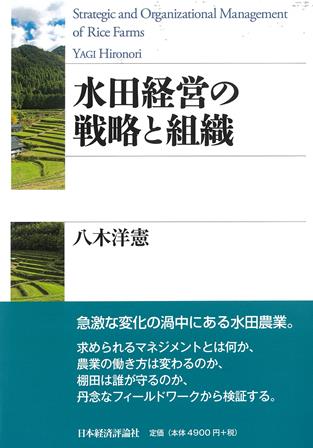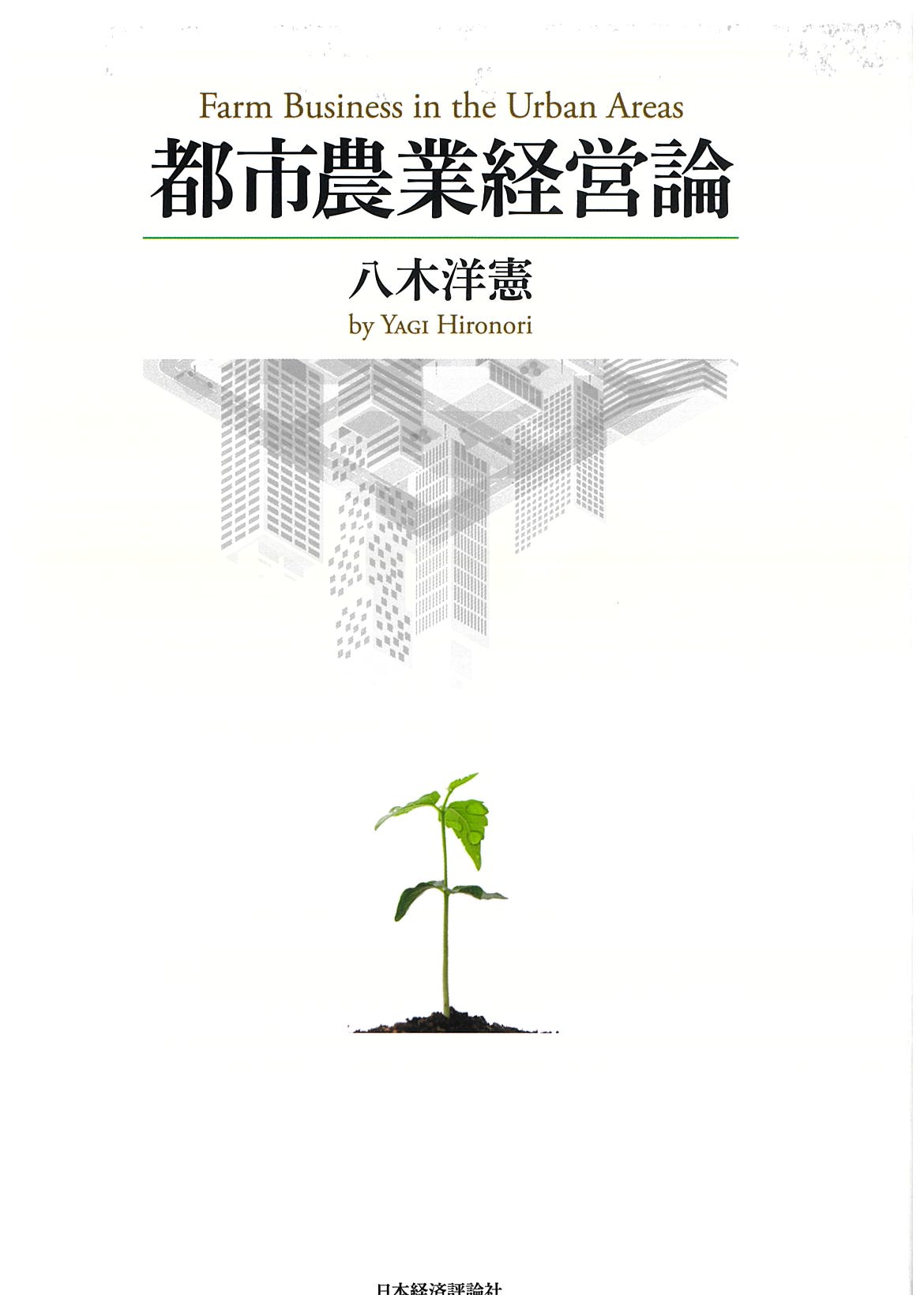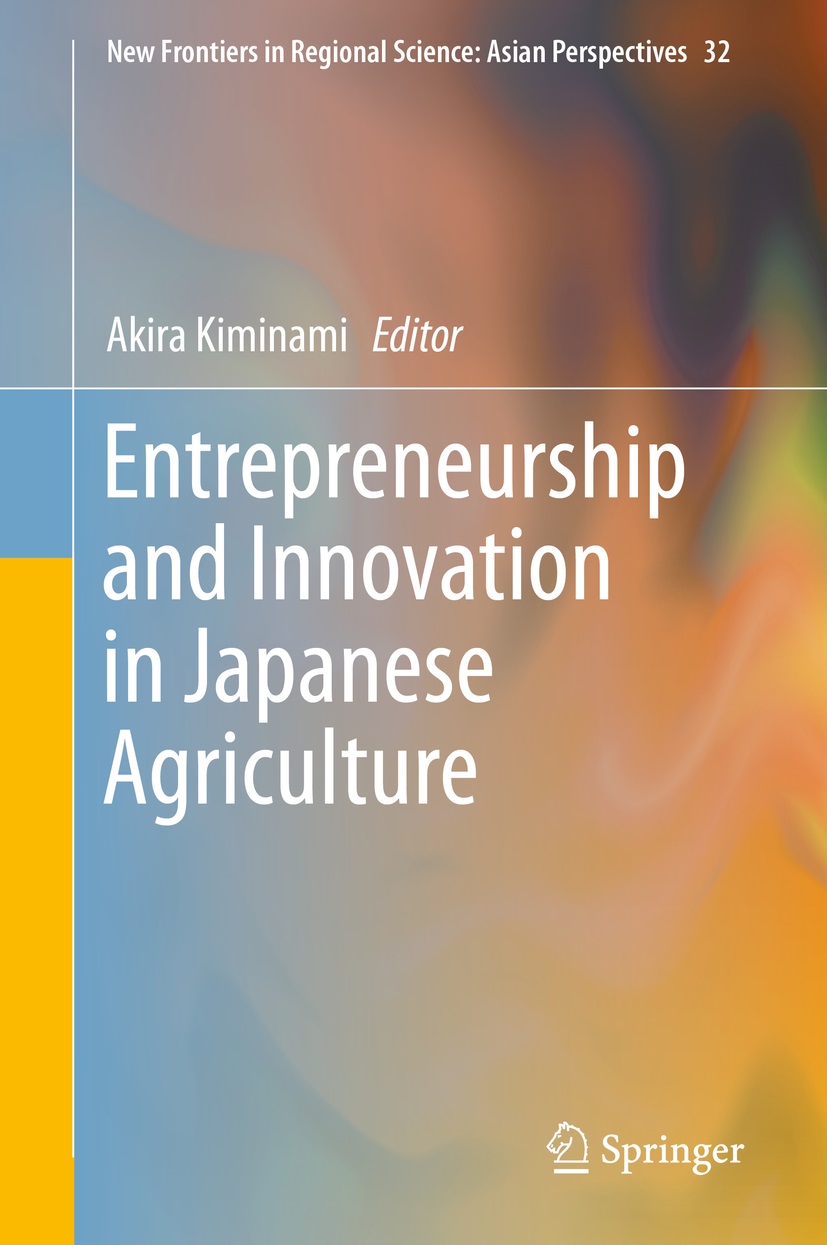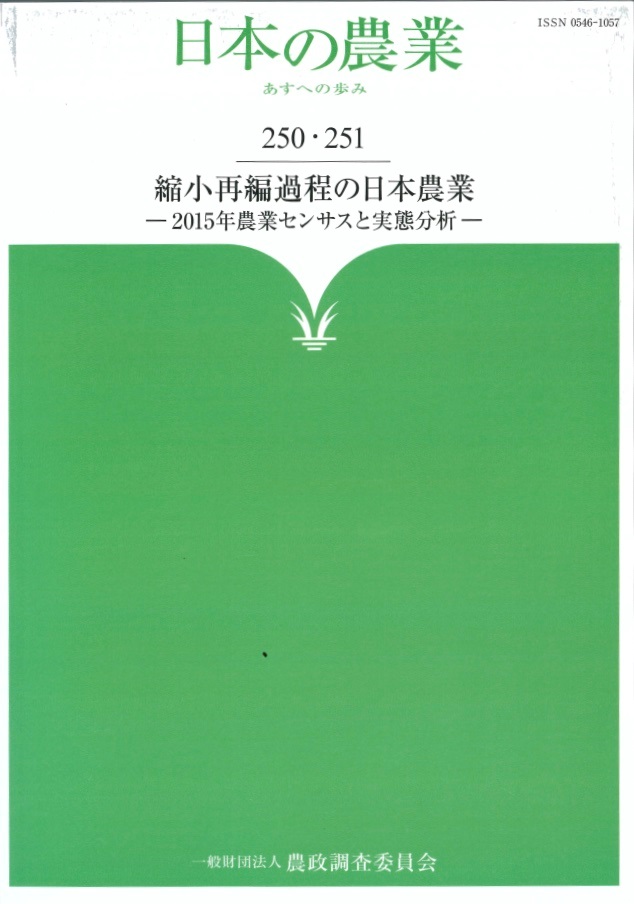
Title
Suiden-Keiei no Senryaku to Soshiki (Strategic and Organizational Management of Rice Farms)
Size
268 pages, A5 format
Language
Japanese
Released
February, 2023
ISBN
978-4-8188-2626-7
Published by
Nihon Keizai Hyouronsha
Book Info
See Book Availability at Library
Japanese Page
While family farms are predominant in agriculture and have long been deemed superior in performance, there has been an increase in non-family farms in recent years. In Japan over the past 20 years, farmland has been accumulating in large-scale rice farms. The business size of family farms is growing due to incorporations, land leases, and hiring of workers. Moreover, community farm organizations were originally centered on voluntary organizations and did not necessarily function as business entities. However, recently, they have gained formal and institutional independence through incorporation, and became organizations that accumulate management resources and sustain their existence as farms, becoming predominant in the rice farming industry.
For these farms to persist with the support of stakeholders (SHs), they must opt for business expansion and organizational restructuring, devise strategies, and appropriately implement management. It is necessary to handle issues, such as their relationships with the SHs, the processes of farmland cumulation, work management according to weather conditions, and maintenance of the working environment. Moreover, their experiences in the hilly and mountainous areas of Japan, where community farms and other management organizations have developed, may provide valuable insights for farming in disadvantaged areas in selecting appropriate business management processes according to their SHs and acquiring management resources.
This volume clarifies the following issues based on a multifaceted analysis of rice farms in Japan. First, management strategies for making rice farms sustainable as they grow under uncertain conditions are clarified from the perspectives of SH relations, farmland accumulation, use of machinery, and human resources. Second, working conditions and job satisfaction of farmworkers are clarified. Third, for hilly and mountainous areas with disadvantageous field conditions, business management that can achieve both farmland conservation and management continuity is clarified.
Current investigation found that, while effective business management varies with the involvement of different SHs depending on the organizational form, the types of business management are converging on a fairly uniform set of options. Results suggest that the business management required for rice farms have expanded and they must deal with many SHs. It involves improving work efficiency and labor distribution. This may be achieved by strategically accumulating farmland, improving the utilization rate of machinery, securing human resources, and keeping down the working peak during the busy farming season while considering how workloads fluctuate. Furthermore, results indicate that it is necessary to implement quick decision-making on how to contribute to the local community. The argument revolves around whether the chosen form of organization can effectively implement this type of business management while maintaining a balance among the SHs.
(Written by YAGI Hironori, Associate Professor, Graduate School of Agricultural and Life Sciences / 2023)
Related Info
Prof. Hironori Yagi’s expertise covers farm business management and rural planning, particularly in the areas of strategic management, organizational governance, business planning of farm businesses, and land use of urban and rural areas. His books include “Theory of Land Use Planning – An Agricultural Management Approach” (2005), “Regional Agricultural Management in the United Kingdom and Ireland” (2009) and “Farm Business in the Urban Areas” (2020). He received the Japan Prize in Agricultural Sciences, Achievement Award for Young Scientists in 2010 and Agricultural Economics Society of Japan Award for Excellency in Academic Publishing in 2022.
Award:
The Farm Management Society of Japan prize (The Farm Management Society of Japan 2023)
https://fmsj.smoosy.atlas.jp/en/introduction
https://fmsj.smoosy.atlas.jp/ja/prize_list
Related Articles:
Dongyool Kim, Hironori Yagi, Akira Kiminami
Exploring information uses for the successful implementation of farm management information system: A case study on a paddy rice farm enterprise in Japan (Smart Agricultural Technology Volume 3 Feb, 2023)
https://doi.org/10.1016/j.atech.2022.100119
RESEARCH ARTICLE: Hironori Yagi and Tsuneo Hayashi
Working conditions and labor flexibility in non-family farms: weather-based labor management by Japanese paddy rice corporations (International Food and Agribusiness Management Review 24(2), pp.249-266 March 9, 2021)
https://doi.org/10.22434/IFAMR2020.0013
RESEARCH ARTICLE: Hironori Yagi and Tsuneo Hayashi
Machinery utilization and management organization in Japanese rice farms: Comparison of single-family, multifamily, and community farms (Agribusiness Volume 37, Issue 2, pp.393-408 August 14, 2020)
https://doi.org/10.1002/agr.21656



 Find a book
Find a book


 eBook
eBook

